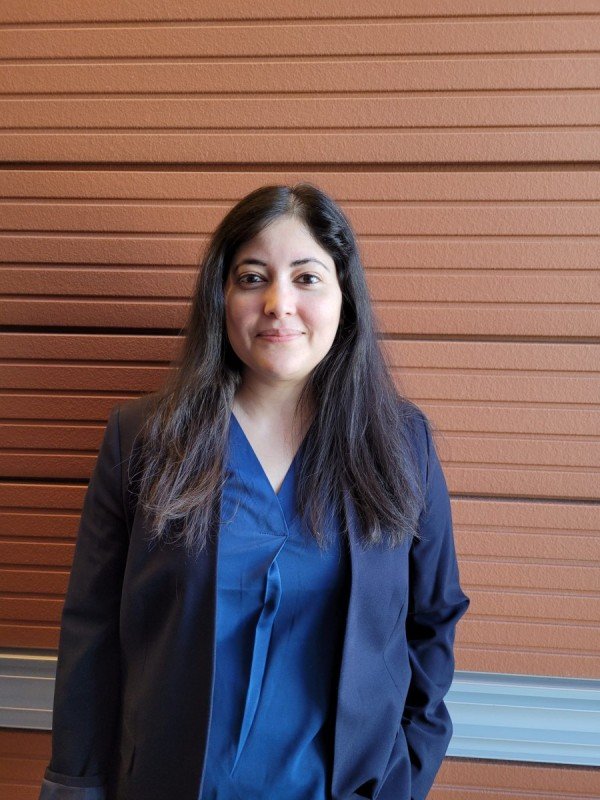
Before joining my postdoctoral fellowship at Memorial Sloan Kettering, the primary area of my research interest was in the field of cancer biology. In my Ph.D., my research was focused on elucidating the implications of the tumor microenvironment on tumor progression while highlighting the novel oncogenic functions of MUC4 mucin in receptor trafficking, particularly in pancreatic cancer (PC). Briefly, I studied the importance of MUC4 degradation by the starving and stressed PC cells for their survival. I also showed the role of bile acids in the pathogenesis of pancreatic cancer.
My doctoral research prompted me to hypothesize that stress plays an essential role in cancer progression from initiation to development to metastasis. Therefore, I decided to do my postdoctoral fellowship in the laboratory that focuses on targeting stress and stress-related pathways in cancer. I joined the chemical biology program at Memorial Sloan Kettering Cancer under Dr. Gabriela Chiosis.
My first project aimed to design the therapeutic strategies to target cancer cell plasticity, which is executed by altering the rewiring of the protein-protein interactions networks, and allow cancer cells to survive and proliferate in response to any environmental or therapeutic stress. Here, the upregulation of chaperone proteins and their rewiring into stable protein networks with tumor surviving functions, which we have coined as the epichaperome, is one of the major adaptive responses acquired by cancer to prevent stress-induced apoptosis. Through my studies, we learned that cancer cells have a finite capacity to rewire proteome networks, and when they reach the state of chaperome hyperconnectivity or PPI hyperconnectivity, further alterations in the network rewiring become impossible and thus create a state of therapeutic vulnerability. My studies further demonstrate that treatment with the epichaperome inhibitor PU-H71 creates a state of PPI network hyperconnectivity in the refractory pancreatic cancer model (Nature Communications Biology, 2021). It was validated using inhibitors that initially did not generate any therapeutic response in the pancreatic tumors; however, they become highly toxic in the state of protein network hyperconnectivity, in ex vivo, in vitro, and in vivo models. We plan to extend this novel intervention to treat other aggressive tumors with limited treatment options.
My second project was to decipher the role of epichaperome in the tumor microenvironment (TME). I have found the enrichment of epichaperome in the myeloid population, which could be an exciting discovery since they are considered significant contributors to immune suppression in cancer. Given their critical role, I am trying to comprehend the functional properties of epichaperome in tumor-associated myeloid cells.
Realizing the prevalence of chaperome-based protein networks in developing neurodegenerative diseases, including Alzheimer’s and Parkinson’s, led to my involvement in other major impactful research projects. Our unbiased high throughput proteomics informed that the acquisition of epichaperome inside the neuronal cells disturbs the entire proteome, which was visible in the form of altered cognitive functions. However, the epichaperome inhibition brought the entire proteome back to normal by dismantling the pathological protein-protein interactions, which improved cognitive ability in the tested mouse models. We reported these findings in our 2020 Nature Communications paper.
While working on the biological mechanisms through which epichaperome executes its pathological functions, I indulged myself in the chemistry and radiochemistry-related projects to authenticate novel chaperome-based tools or probes, particularly in brain-related diseases. The utility and uniqueness of a few of these tools have been highlighted in my recently published co-first authored Nature Communications paper (2021).
In addition to these projects, I have participated in several collaborative projects within and outside the laboratory. I collaborated with the Moritz Kircher group and found the biological mechanism behind their synthesized gold-lactalbumin nanoprobes, a potent theranostic agent. I participated in a large-scale study with the Professor Steven Leach Group, which aimed to discover the most effective therapeutic combination to treat pancreatic cancer and reported in my co-authored PNAS 2019 paper.
Lastly, our laboratory is working on a novel theme to target the entire disease-specific proteome rather than just targeting a single protein that is not therapeutically effective based on frequent therapy failures. My translational studies at MSK have been a part of multiple preclinical and clinical trials to treat aggressive solid and liquid tumors. The Chemical tools validated from my studies are being used in the clinics to detect epichaperome based lesions in solid tumors and brain disorders.